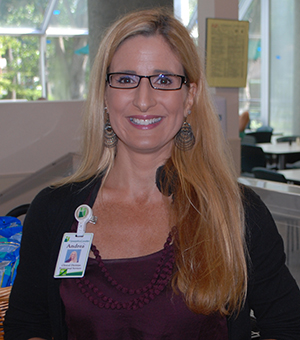Nutrition and hydration: How they help if you have COVID-19
COVID-19, Nutrition
St. Joseph’s/Candler clinical dietitian explains how what you eat and drink helps manage symptoms of your illness
If you get diagnosed with COVID-19, the flu or even the common cold, hydration and nutrition are probably the last things on your mind. But, paying attention to what you eat and drink may help you get better quicker.
“Nutrition and hydration are important to our overall health for multiple reasons, but particularly right now, they help with immune function to keep you healthy and your immune system functioning well throughout this pandemic,” says Andrea Manley, a registered clinical dietitian at St. Joseph’s Hospital.
Related Article: 12 ways to keep your immune system happy and healthy
How food can help when you are sick

Say for example, you have a fever. That’s a very common symptom of COVID-19 and the flu. A high fever can cause you to sweat, which could lead to dehydration and loss of electrolytes. Drinking plenty of water is the most important thing to do to help stay hydrated, Manley says. You may think to reach for a sports drink for electrolytes. Or, consider instead reaching for a banana. Bananas are full of potassium which is actually both an electrolyte and soluble fiber source that may aid in GI regularity and help to resolve diarrhea.
But what if I have diarrhea or nausea? Diarrhea is a fairly common symptom of COVID-19. Diarrhea also causes you to lose fluid and electrolytes so you want to be active staying hydrated. Be aware of the signs of dehydration:
- Increased thirst
- Fever
- Dark colored urine
- Dry mouth
- Increased heart rate
- Tiredness
- Confusion
If you are suffering from diarrhea, Manley suggests plenty of water and eating small amounts of food throughout the day that have electrolytes and sodium in them. This is the time to avoid insoluble fiber – beans, whole grains and corn, for example, which can contribute to diarrhea. She suggests soluble fiber, such as bananas, fruit without peel or pulp, oatmeal, sweet potatoes or taking a fiber supplement.
Related Article: Fiber: The unsung hero in weight management, digestion and lowering cholesterol
But what if I lost my sense of taste or appetite? You still need to eat. That may sound hard if you’re not hungry or enjoying food, but it’s important to still get calories and protein each day to prevent lean body weight loss, which contributes to decreased immune function, Manley says.
“It helps build your immune function when you have adequate muscle mass,” says Manley. “Eating adequate macronutrients such as protein can help to prevent lean body weight loss and could potentially help prevent poor outcomes and illness.”
Manley suggests small meals throughout the day instead of large meals. Make sure you are getting all the necessary nutrients.
Specifically speaking of vitamins, some early studies during this pandemic have shown that vitamins C and D, as well as zinc, have shown positive outcomes with COVID patients that have sufficient levels of these nutrients, Manley says. If you are sick and isolating at home, Manley suggests focusing on foods high in vitamin C, vitamin D and zinc. If there is a concern that you are deficient in these nutrients, supplements may be beneficial. Talk to your physician if supplements are right for you.
How food can help you not get sick
For those not sick, your diet can help you stay that way. As mentioned, what we eat can impact our immune system.
We also know with COVID-19, those with comorbidities, such as diabetes and obesity, are at higher risk of severe complications from the virus. A healthy, balanced diet can help with weight loss and management. For those with diabetes, it’s important to keep your blood sugar controlled and follow the dietary advice of your dietitian and physician.